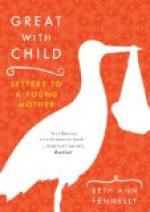Much has been said about cutting down orchards; but the whole seems to me idle—for if the fruit is of a good quality, it may be used as food, either for man or beast. And if not good, the trees ought either to be destroyed or replaced by those that will produce fruit which is better—even if the object were to make it into cider. I have said that apples may be used both by man and beast. It is well known that most domestic animals thrive well on good apples, especially sweet ones. Very tolerable molasses is also sometimes made from sweet apples.
Nearly everything which has been said above in regard to apples, will apply to pears. The best varieties of this excellent fruit are quite as nutritious and as wholesome as the apple; and as much improved for the table by baking. I believe, however, that no cheap process has yet been devised for keeping them as long in the winter. They may be preserved in the form of sauce, prepared in the same way with common apple sauce. The skins, of many kinds of pears are less injurious than those of apples; but even the skins of pears need not be eaten.
Some kinds of peaches are tolerably wholesome; but the stringy character of their pulp appears to me to render them less so than apples and pears, though I am not confident on this point. But if used at all, they should be used in less quantity at one time. Tempting as their flavor is, I seldom eat them, when I can get apples and pears; holding myself in duty bound to use the best, even of the fruits.
“Fruit,” says Mr. Locke, “makes one of the most difficult chapters in the government of health, especially that of children. Our first parents ventured Paradise for it; and it is no wonder our children cannot stand the temptation, though it cost them their health. The regulation of this cannot come under any one general rule; for I am by no means of their mind who would keep children wholly from fruit, as a thing totally unwholesome for them, by which strict way they make them but the more ravenous after it, to eat good or bad, ripe or unripe, all that they can get, whenever they come at it.
“Melons, peaches, most sorts of plums, and all sorts of grapes, in England, I think children should be wholly kept from, as having a very tempting taste, in a very unwholesome juice, so that if it were possible, they should never so much as see them, or know that there was any such thing. But strawberries, cherries, gooseberries and currants, when thoroughly ripe, I think may be pretty safely allowed them.”




